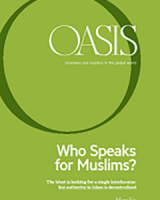Saudi Ulama, Guardians of Change

Abstract
The theologian Ibn ‘Abd al-Wahhāb guaranteed the Saudi rulers their religious legitimacy. The sovereigns, in their turn, granted the cleric and his followers a monopoly on Islam’s interpretation. Exported throughout the world thanks to the kingdom’s huge resources, even this controversial, ultra-conservative doctrine has had to cope with the modernization that has thrown the founding pact into crisis and generated conflict within the religious establishment
The Sunni ulama (clerics) of Saudi Arabia have struggled to cope with the country’s modernisation and socio-political changes affecting the founding Saudi religious traditions developed by Muhammad Ibn ‘Abd al-Wahhāb in the eighteenth century. Although some ulama are resistant to change, others have cautiously embraced the progression of Saudi society, including by modifying their religious positions to suit evolving circumstances. This has resulted into contestations and negotiations among Saudi religious circles, at times leading to vigorous debates over the authenticity of Saudi religious identity.









